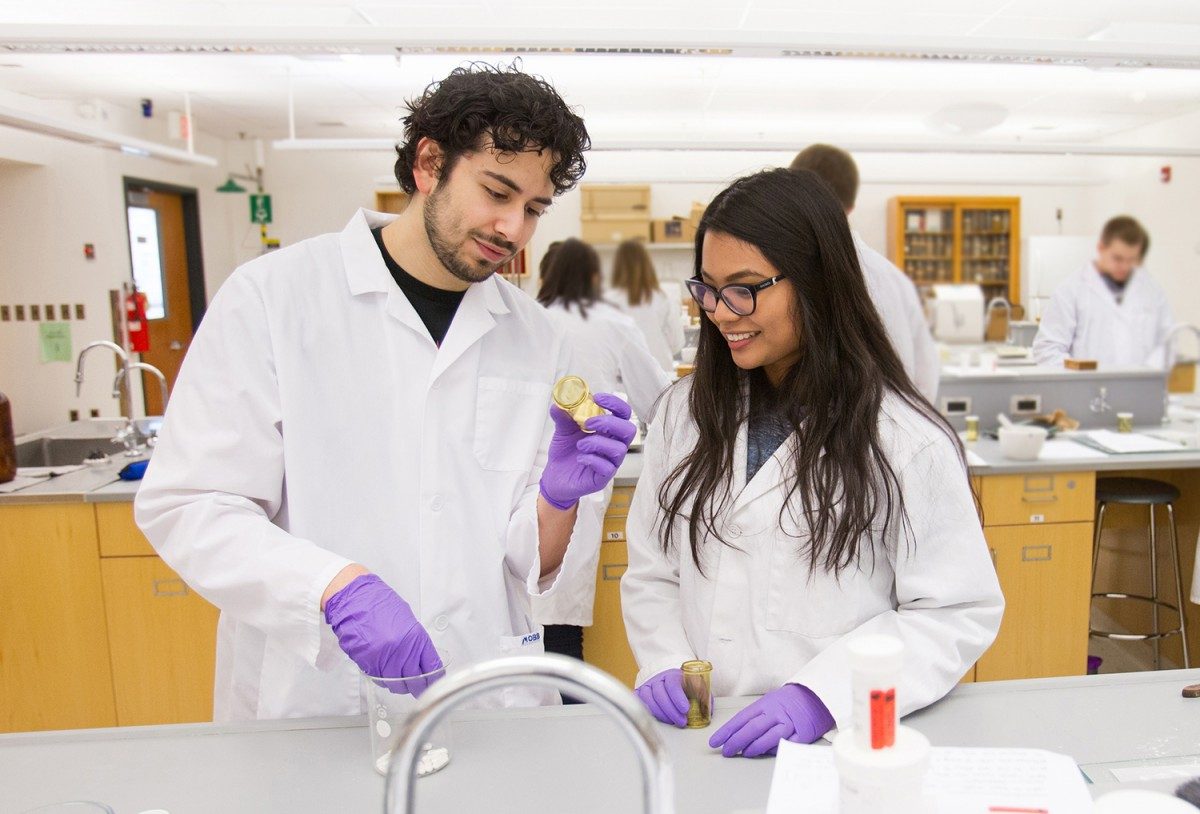
New Doctor of Pharmacy (PharmD) degree program receives approval
It’s official!
The University of Manitoba’s new Doctor of Pharmacy (PharmD) degree program has now received approval from the Government of Manitoba, having previously been approved by the University of Manitoba Senate.
Students who enter the Rady Faculty of Health Sciences College of Pharmacy in 2018 will be among the first graduates from the new program.
“It’s an exciting time,” said Dr. Lalitha Raman-Wilms, dean of the College of Pharmacy. “A great deal of preparation has gone into the development of this program and we are pleased to finally be able to offer it to our students.”
The new curriculum will expand the breadth and depth in clinical and advanced therapeutics, scientific literature evaluation, pharmacogenetics, pharmacoepidemiology, pharmacoeconomics, patient care-related practice skills laboratories, simulation training and Indigenous health.
Students will also spend significantly more time on experiential learning, which will increase to 1,600 hours (40 weeks) from 640 hours in the B.Sc. (Pharmacy) program.
“This is vitally important for our students as they prepare for their future careers,” said Raman-Wilms. “Experiential learning provides the opportunity to apply classroom learning into real-life situations and make a difference to patients’ health.
“The clinical role of the pharmacist is greater than ever before. This change will help give them the foundation they need to work effectively with patients and the health-care team.”
The switch from the Bachelor of Science (Pharmacy) to the PharmD came about because of regulations set by the college’s accrediting body, the Canadian Council for Accreditation of Pharmacy Programs (CCAPP), explained Lavern Vercaigne, associate dean (academic), College of Pharmacy.
After December 31, 2020, B.Sc. (Pharmacy) programs will not be accredited by the CCAPP. “This is not unique to the University of Manitoba – it affects all pharmacy programs in the country,” he said.
Students currently enrolled in the College of Pharmacy will complete their degrees as planned and graduate with a B.Sc. (Pharmacy). The college also plans to continue enhancing the current B.Sc. program. Students who begin their studies in fall 2018 will complete just one year of the B.Sc. (Pharmacy) program, then transition to the new program for a further four years of study.
“It’s a significant change,” Vercaigne said. “But we’re confident it’s going to help our students be even better prepared to provide patient care and meet all the challenges of the profession.”






